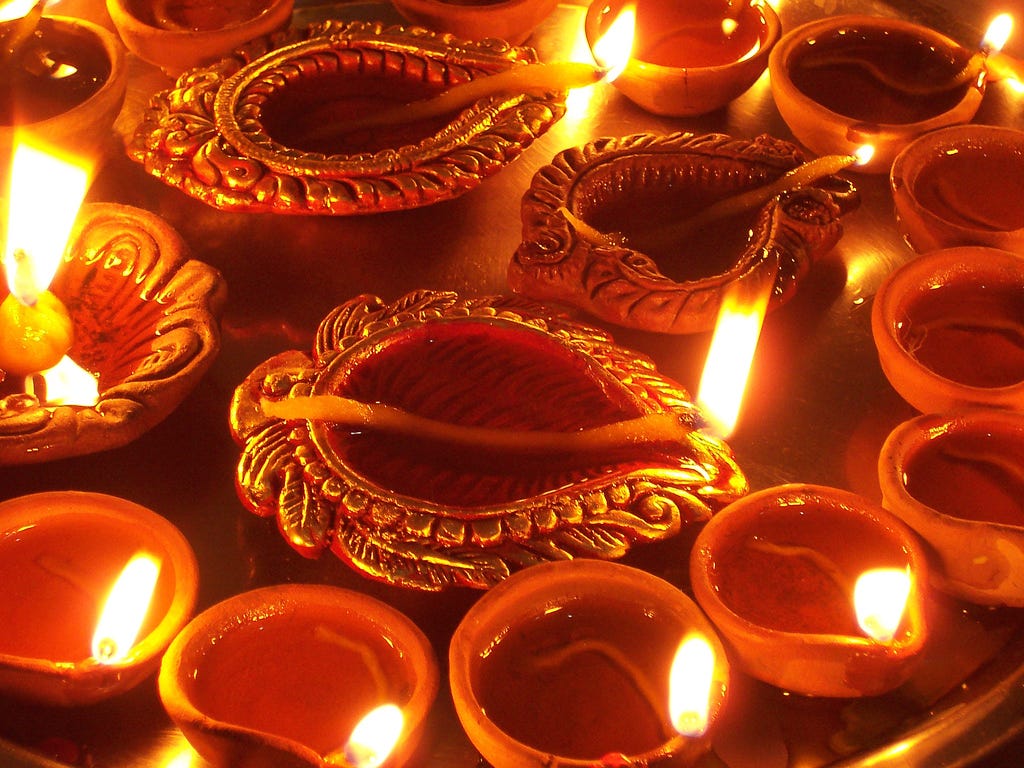Hinduism is one of the world’s oldest religions, characterized by its rich culture, traditions, and vibrant festivals. Each festival serves as a colorful expression of faith, highlighting the diversity and philosophy of this ancient religion. This article explores the top 10 Hindu festivals, including Diwali, Holi, Navaratri, and Raksha Bandhan, outlining their significance and unique celebration styles. From the Festival of Lights symbolizing the triumph of good over evil to the joyous Festival of Colors and the sacred observance of familial bonds, these celebrations reflect the core values of Hinduism and foster community ties, ensuring the traditions are passed down through generations.
Hinduism, one of the world’s oldest religions, is rich in culture, tradition, and festivals. Each festival is a vibrant expression of faith, showcasing the diversity and philosophy of this ancient religion. Here, we explore the top 10 festivals in Hinduism, examining their significance and how they are celebrated.
1. Diwali: The Festival of Lights
Diwali, also known as Deepavali, is perhaps the most widely celebrated festival among Hindus across the globe. Known as the Festival of Lights, it symbolizes the victory of light over darkness and good over evil.
Celebrations:
During Diwali, homes are adorned with earthen lamps (diyas) and colorful rangoli designs. Families perform puja (worship) to Goddess Lakshmi, the deity of wealth and prosperity. Fireworks light up the night sky, and the celebration includes exchanging sweets and gifts. The festival spans five days, with each day dedicated to different rituals and significances.
2. Holi: The Festival of Colors
Holi, the Festival of Colors, marks the arrival of spring and the victory of good over evil. It is celebrated with exuberance across India and in various parts of the world.
Celebrations:
On this day, participants throw colored powders (gulal) and water at each other, dance to traditional songs, and enjoy festive foods. The night before Holi is celebrated as Holika Dahan, symbolizing the burning of the demoness Holika. This riot of colors represents joy, love, and the fullness of life.
3. Navaratri and Durga Puja: Celebrating the Divine Feminine
Navaratri, meaning "nine nights," is a festival dedicated to the worship of Goddess Durga. It is one of the most significant festivals in Hinduism and culminates in the celebration of Durga Puja.
Celebrations:
The festival involves fasting, prayer, and dance. Each of the nine nights is devoted to a different avatar of Goddess Durga. In West Bengal, Durga Puja is particularly grand, with elaborate idols of the goddess being paraded and immersed in water at the end of the festivities.
4. Raksha Bandhan: The Bond of Siblings
Raksha Bandhan celebrates the sacred bond between brothers and sisters. The festival signifies love, protection, and familial responsibility.
Celebrations:
On this day, sisters tie a protective thread (rakhi) around their brothers’ wrists, and in return, brothers pledge to protect their sisters. Families come together to share sweets and gifts, reinforcing the importance of familial ties and duties.
5. Makar Sankranti: Harvest Festival
Makar Sankranti is a significant harvest festival celebrated primarily in January. It marks the transition of the sun into the zodiac sign of Capricorn (Makara).
Celebrations:
The festival is known for kite flying, feasting on traditional foods like sesame sweets (tilgul), and participating in various regional rituals. In South India, it is celebrated as Pongal, paying homage to nature and cattle, while in Punjab, it is known as Lohri, signifying the end of winter.
6. Janmashtami: Lord Krishna’s Birthday
Janmashtami celebrates the birth of Lord Krishna, an avatar of Lord Vishnu, and is marked by joyous celebrations across India.
Celebrations:
Devotees fast, recite prayers, and reenact episodes of Krishna’s life. In many regions, the festival is marked by the playful breaking of dahi handi—an earthen pot filled with curd, symbolizing Krishna’s mischievousness. The night of Janmashtami is filled with excitement, culminating in midnight festivities celebrating Krishna’s birth.
7. Ganesh Chaturthi: Honoring Lord Ganesha
Ganesh Chaturthi is dedicated to Lord Ganesha, the elephant-headed god known as the remover of obstacles. The festival is particularly popular in Maharashtra.
Celebrations:
Idols of Ganesha are created and adorned in homes and public spaces. The celebrations last for ten days, culminating in the immersion of the idols in water, symbolizing Lord Ganesha’s return to his celestial abode. The festival promotes community spirit, creativity, and devotion.
8. Onam: Harvest Festival of Kerala
Onam is the most significant festival in Kerala, celebrating the annual harvest and honoring King Mahabali, a beloved mythical ruler.
Celebrations:
Festivities include creating intricate flower carpets (pookalam), practicing traditional dances (like Thiruvathira), and enjoying an elaborate feast known as Onam Sadhya. The highlights of the festival are the vibrant snake boat races and the communal spirit that pervades the celebrations.
9. Karva Chauth: The Festival of Wives
Karva Chauth is a fasting ritual observed by married Hindu women for the well-being and longevity of their husbands.
Celebrations:
Women fast from sunrise to moonrise, refraining from food and water. In the evening, they gather with friends and dress in festive attire, performing rituals as they await the sighting of the moon. This festival emphasizes love, devotion, and the strength of marital bonds.
10. Baisakhi: Punjabi New Year and Harvest Festival
Baisakhi, celebrated primarily in the Punjab region, marks the onset of the harvest season and the Punjabi New Year.
Celebrations:
The festival includes vibrant folk dances like Bhangra and Gidda, singing traditional songs, and feasting on delicious Punjabi cuisine. Baisakhi is not only a harvest festival but also holds significance for Sikhs as it commemorates the formation of the Khalsa.
Conclusion
Hindu festivals are a beautiful tapestry of faith, culture, and community, celebrating the essence of life and the divine. Each festival reflects the values and vibrancy of Hinduism, uniting individuals in joyous celebration and spiritual reflection. Through these festivals, the teachings of Hinduism continue to thrive across generations, strengthening the bonds of community and family.
